Leon Explained in The Jewish Question – A Marxist Interpretation Why Anti-Semitism Arose and Where it Came From
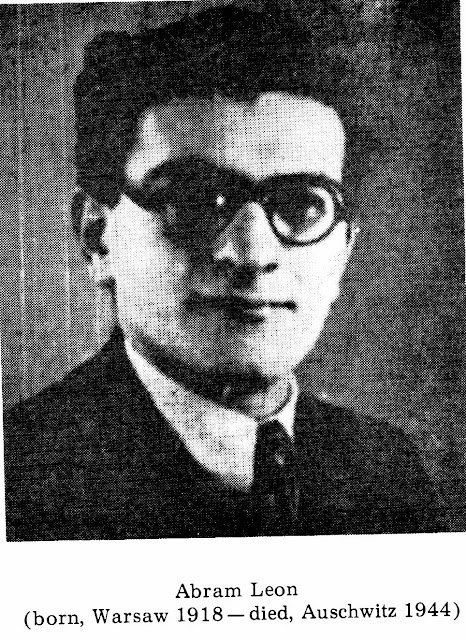
As readers of my book will know, during the Second World War the Zionist movement was a Quisling movement that collaborated with the Nazis and went out of its way to obstruct rescue of Jewish refugees whose destination wasn’t Palestine.
By way of contrast Abram Leon, leader of the Fourth International in Belgium, died resisting the Nazis. Where, as in the Warsaw Ghetto, Zionists fought alongside Jewish anti-Zionists against the Nazis they did so not because they were Zionists but despite their Zionism.
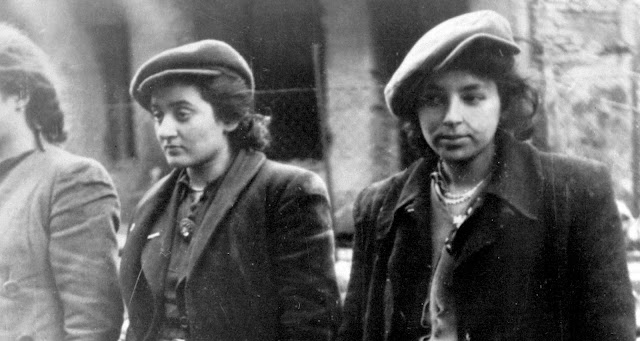
After the Warsaw Ghetto Uprising there was panic in Palestine. Dina Porat, Chief Historian at Israel’s Yad Vashem Propaganda Museum wrote that Melech Neustadt of the Jewish Agency Executive:
repeatedly implored the youth movement leaders in Palestine to save those still alive – even against their will – by issuing a directive that they were to leave immediately by whatever ways possible… The issue was whether or not the Yishuv was morally justified in instructing these comrades to abandon their communities, save themselves, and thereby stop the armed uprisings…. the numerous revolts in the summer of 1943 would ultimately deprive the Yishuv of the cream of Europe’s potential pioneering force… among the major youth movements in Palestine. Neustadt’s views prevailed and attempts to extricate the activists failed. They refused to leave. [Porat, The Blue and the Yellow Stars of David, p. 241]
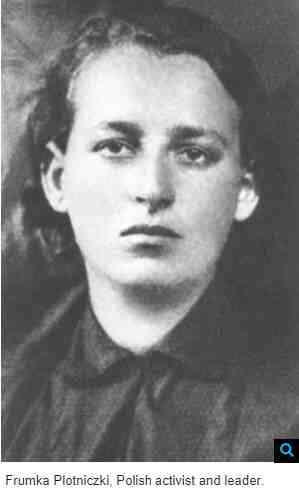
A Zionist emissary arrived in Bedzin, a Nazi ghetto in Poland, in July 1943 after the Warsaw Uprising to persuade Frumka Plotnicka to leave. She replied that ‘I have a responsibility for my brethren… I have lived with them and I will die with them.’ The Zionist fighters, such as Antek Zuckerman and Zivia Lubetkin, refused on principle to leave. One can only admire the bravery and commitment of these young fighters who, given the choice between the fight against the Nazis in the Diaspora and the Arabs in Palestine, committed what in Zionist eyes, was a mortal sin. They chose the Diaspora.
One of the Palestinian emissaries, Yudke Hellman, described how in October and December 1939 he witnessed the return of Plotnicka and Lubetkin to German-occupied Poland and how he had tried and failed to persuade them to leave for Palestine. Frumka stood up and announced that her decision to return to Warsaw was final. [Yechiam Weitz, The Yishuv’s Response to the Holocaust, pp. 218-19].
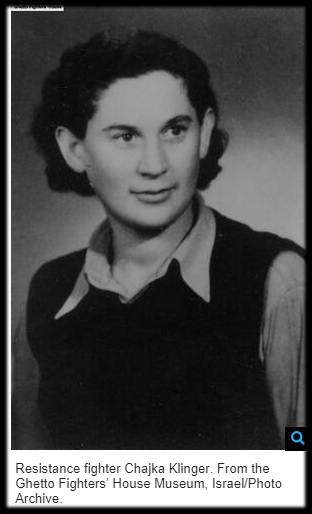
Hayka Klinger, another fighter in Warsaw, who arrived in Palestine in March 1944, told the Histadrut Executive that ‘we received an order not to organize any more defence.’ [Porat p. 242] Klinger observed that
‘Without a people, a people’s avant-garde is of no value. If rescue it is, then the entire people must be rescued. If it is to be annihilation, then the avante-garde too shall be annihilated.’ [Edith Zertal, Israel’s Holocaust and the Politics of Nationhood, p. 33]
Never was the ethical and moral distinction between the Jewish diaspora and Palestine’s Zionist leaders clearer.
The Zionist leaders saw the risings in the ghettos as ‘a kind of betrayal of the overriding principle of the homeland.’ [Zertal p.34] Yet despite opposing the uprisings at the time, the ghetto fighters were ‘retrospectively conscripted’ into the Zionist terror groups. ‘We fought here and they fought there’ according to Palmach commander Yitzhak Sadeh. [Zertal p.26] Except that the Jewish partisans fought against the fascists whereas the Zionist militias fought with fascists.
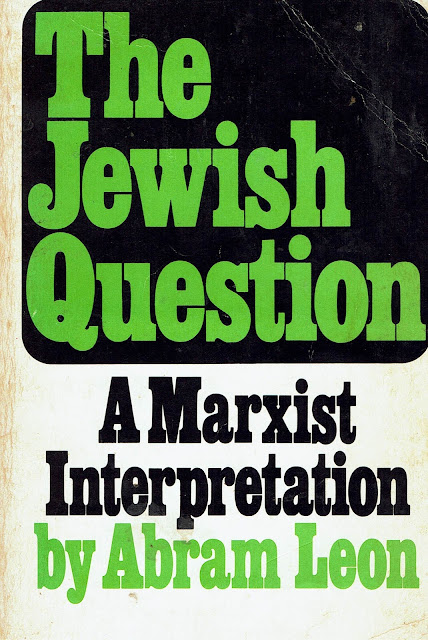
This is why John Rose of the SWP was wrong when he argued that Zionism was not an obstacle to fighting against fascism. Rose wrote:
It’s true that when Hitler came to power some Zionist leaders stupidly thought that they could do a deal with him that would enable some German Jews to go to Palestine.
The Zionist attitude to the Nazis had nothing to do with ‘stupidity’ nor was Ha’avara, their trade deal with the Nazis, about enabling some Jews to go to Palestine. However I digress.
Abram Leon was born in Warsaw in 1918 and died in Auschwitz in 1944. Leon had been the leader of Hashomer Hatzair (Young Guard), a left-wing Zionist youth group, from 1936 till 1940 when he and 20 comrades broke from Zionism and joined the underground Trotskyist organisation. He was arrested by the Nazis in June 1944 and tortured before being sent to Auschwitz where he died in September 1944.
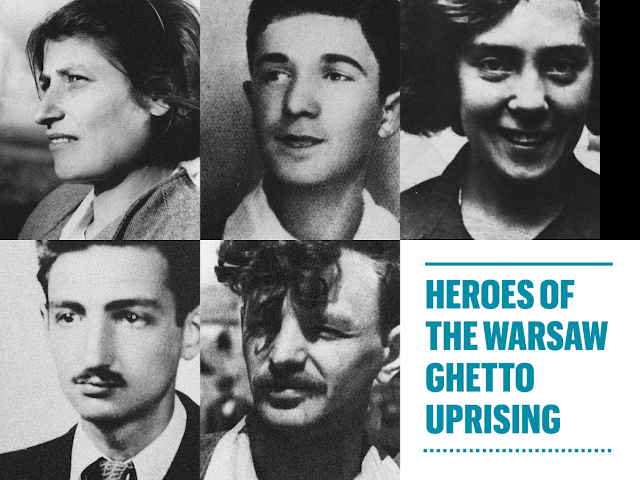
Leon died at the age of 26 but not before he had written The Jewish Question – A Marxist Interpretation, which was written whilst leading the resistance to the Nazis. It is a remarkable work, not least because of the conditions under which it was produced.
Leon’s thesis in a nutshell was that unlike the myths spread by the Zionists and Orthodox Jewry, that the Jews survived because of their religion, the exact opposite was the case. He reversed the relationship. The religion survived because of the Jews. It was the specific social and economic role that Jews played in society, reflected as it was in their religion, which kept the religion going.
It was Karl Marx who had written in On the Jewish Question that:
Judaism has survived, not in spite of history but because of it. (p.92)
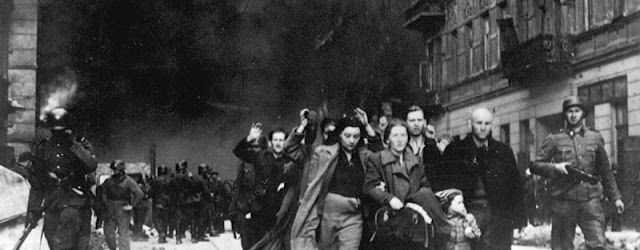
Indeed where Jews did not have a specific socio-economic role as with the Jewish farmers in Sicily, they assimilated to the surrounding population.
Zionism has rewritten the history of the Jews and hence the history of anti-Semitism. Zionism, with its claim to Palestine, consists of a series of myths designed to appeal to the simplest of minds.
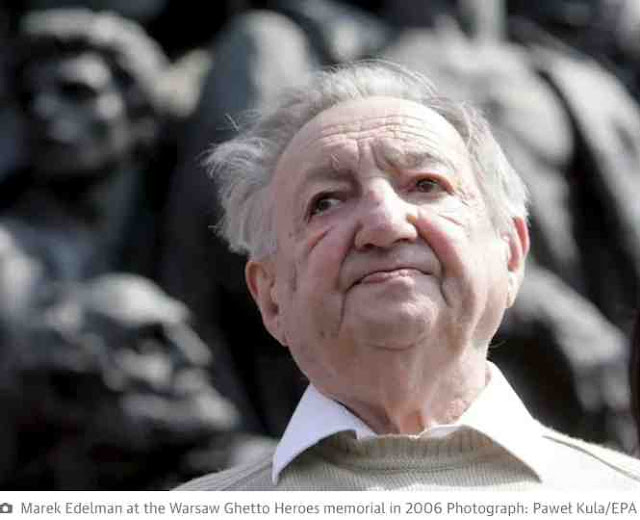
How many times did we hear during the attacks on Corbyn that anti-Semitism was a ‘virus’, a pathological and incurable condition. As one of the first Zionists, Leon Pinsker wrote in Autoemancipation:
‘Judeophobia is then a mental disease, and as a mental disease it is hereditary, and having been inherited for 2,000 years, it is incurable.
Pinsker was a doctor so he used the term ‘Judeophobia’ rather than anti-Semitism. But if a disease is incurable then there is no point in fighting it. At best one seeks pain relief or palliatives.
Theodor Herzl, the founder of Political Zionism, was of the belief that the cause of anti-Semitism was the Jews themselves. Their fault was living in other peoples’ countries. The solution was therefore colonisation. In the Jewish State he wrote:
“The unfortunate Jews are now carrying the seeds of anti-Semitism into England; they have already introduced it into America.”
Leon demolishes this and other Zionist myths and shows how, as Jews fulfilled certain roles in society – money lenders, tax stewards, usurers, traders, skilled craftsmen –anti-Semitism itself changed. Religious anti-Semitism expressed class antagonism to the role Jews played in feudal society and was expressed as religious antagonism.
Leon’s great achievement was to situate the Jews in history. Instead of the Zionist myth of the expulsion of the Jews from Palestine in the wake of the destruction of the Second Temple, for which there is zero evidence, he showed how it was the Jews themselves who emigrated because Palestine was incapable of feeding its inhabitants.
In this the Palestinian Jews were not unique. Many people such as the Phoenicians and Armenians had followed similar paths.
Some 4 million Jews left Palestine in the first two centuries AD. Some 1 million of them were to be found in Alexandria alone, one of the great Hellenized cities in the Mediterranean. Like many people before them, the Jews became great traders and it was through trade and commerce that Jews survived.
Leon’s explanation of the Jews as a ‘people-class’ explained their survival. In the feudal era, a society based on production for use not exchange, groups who carried out particular socio-economic roles were seen as being different ethnically from the native population.
The Zionist idea of ‘eternal anti-Semitism’ is a way of avoiding difficult questions such as why the Jews survived and why there was persecution. It is really a reflection of the anti-Semitic stereotype of the ‘eternal wandering Jew’ which became a film under the Nazis.
Anti-Semitism constituted the class antagonism of different layers of feudal society towards the economic role that Jews played.

Thousands of Jews died in peasant revolts, be it at York, Norwich or at the hands of Chmielniki and the Cossacks in Poland from 1648 to 1657. However this was a peasants revolt against the role of Jews as Arendators, officials who leased land from the nobles and whose demands on the peasants were extremely exacting.
Many of those who died were Jews but contrary to popular history it wasn’t just Jews who suffered. As Anna Reid wrote in Borderland: A Journey Through the History of Ukraine:
Wherever they found the szlachta, royal officials or Jews, they [Cossacks] killed them all, sparing neither women nor children. They pillaged the estates of the Jews and nobles, burned churches and killed their priests, leaving nothing whole….
But whereas anti-Semitism in feudal times came from the peasants and mendicant religious orders, with the Jews as in Poland, protected by the nobility and King, under capitalism anti-Semitism came from the State and the ruling classes. The best example until the Nazis was under the Czar whose Ministers deliberately instigated pogroms, creating the Black Hundreds for this purpose.
To the Zionists anti-Semitism was the property of all non-Jews regardless of class. Anti-Semitism existed because the Jews existed. As A B Yehoshua explained, the Jews were guests who used other peoples’ countries like hotels. [Jewish Chronicle, 22.12.89. ‘Diaspora a cancer’]
As Hannah Arendt observed
If it is true that mankind has insisted on murdering Jews for more than two thousand years, then Jew-killing is a normal, and even human, occupation and Jew-hatred is justified beyond the need of argument. [The Origins of Totalitarianism, p. 7] The Origins of Totalitarianism, p. 7,
Leon’s book went almost unnoticed until it was resurrected by French Marxist Maxime Rodinson in 1968 at the height of the Paris riots.
Leon’s main argument was that the Jews formed a ‘People Class’ – that they performed specific tasks in pre-capitalist society that bound them together as both a people and a class. Under feudalism this was very common. Not just the Jews but the Gypsies, Scots, Armenians and Chinese of South Asia, who were even called the Jews of Asia, also formed castes that attracted popular ire.
Where the Jews lost a distinctive socio-economic role they assimilated to the majority. To the Zionists anti-Semitism was common to all non-Jews. As Leon wrote (p.247)
Zionism transposes modern anti-Semitism to all of history and saves itself the trouble of studying the various forms of anti-Semitism and their evolution.[1]
In what is a short book, Leon gave a panoramic overview of the Jews historically. The book explains that the ‘Jewish Question’ was dying out in Western Europe with the advent of capitalism. The Jews no longer had any specific socio-economic role. They were assimilating to the majority population with the advent of Emancipation. It was only anti-Semitism in Russia and Eastern Europe, resulting in waves of migration by Jews westwards, that kept the Jewish Question alive.
Zionism was implacably opposed to Jewish Emancipation because they saw, correctly, that granting equal rights to Jews meant that they were no longer forced by the state to maintain a separate existence. In Israel today the fascist Lehava calls miscegenation , inter-racial sex, a holocaust. Israeli minister Rafi Peretz labeled intermarriage between American Jews and non-Jews as being “like a second Holocaust.”
Leon had but a very short life but in that very short time-span he produced one of the Marxist classics which cuts through the mystification of Zionism in its treatment of both Jewish history and anti-Semitism .
I began by saying that Leon had started out as a Zionist in Hashomer Hatzair. In Palestine this was a political party which later became Mapam. Their strand of ‘Marxist’ Zionism had been founded by Ber Borochov, who was expelled from the Russian Social Democratic Party in 1901 for Zionism.
Borochov held that Jews could not take part in the class struggle in the diaspora because they had no relationship to the means of production. Their conditions of production meant that they were outside the class struggle. According to Borochov social structure of the Jews resembled an ‘inverted pyramid’ – too many rich Jews and not enough poor or working class Jews.
It was only in Palestine where Jews could form their own society that it was possible for class struggle to break out. Borochov, who ended up supporting WW1 was wrong. It was precisely at this time, the end of the 19th and beginning of the 20th centuries that Jews were becoming part of the proletariat.
Marxist Zionism was always a cult that used sophistry to explain away colonialism. If Borochov is to be taken at his word then Socialist Zionists having allied with the bourgeois Zionists in order to create a Jewish State would then wage class war against them! The problem with this was that it was more likely to become part of the bourgeoisie in such a state.
We can see where this bankrupt theory has ended up. In the last Knesset Meretz, which was the descendant of Mapam, found itself in alliance with the far-Right Yisrael Beteinu and Yamina. In the 2020 elections Meretz, has been eliminated from the Knesset altogether. In 1949 in Israel’s first elections it obtained 19 seats.
The beauty of Leon’s book is that it at once provides an overview of Jewish history since ancient times and explains how and why anti-Semitism has persisted, albeit in different forms. It demystifies anti-Semitism.
As Leon remarked in the section on Zionism and the belief in 2,000 years of exile:
In reality just so long as Judaism was incorporated in the feudal system, the “dream of Zion” was nothing but a dream and did not correspond to any real interest of Judaism. The Jewish tavern owner or “farmer” of sixteenth-century Poland thought as little of “returning” to Palestine as does the Jewish millionaire in America today. Jewish religious Messianism was no whit different from the Messianism belonging to other religions. Jewish pilgrims who went to Palestine met Catholic, Orthodox, and Moslem pilgrims. Besides it was not so much the “return to Palestine” which constituted the foundation of this Messianism as the belief in the rebuilding of the temple of Jerusalem.
We should not forget that Leon was writing at the height of the Nazi persecution, a persecution which claimed him in that death factory, Auschwitz. He wrote that one of the “ironies of history” was that
when the Jew was unassimilable, at a time when he really represented “capital,” he was indispensable to society. There could be no question of destroying him. At the present time, capitalist society, on the edge of the abyss, tries to save itself by resurrecting the Jew and the hatred of the Jews. But it is precisely because the Jews do not play the role which is attributed to them that anti-Semitic persecution can take on such an amplitude. Jewish capitalism is a myth; that is why it is so easily vanquished. But in vanquishing its “negative,” racism at the same time destroys the foundations for its own existence….
The irony of history wills that the most radical anti-Semitic ideology in all history should triumph precisely in the period when Judaism is on the road of economic and social assimilation. But like all “ironies of history” this seeming paradox is very understandable. At the time
Tony Greenstein